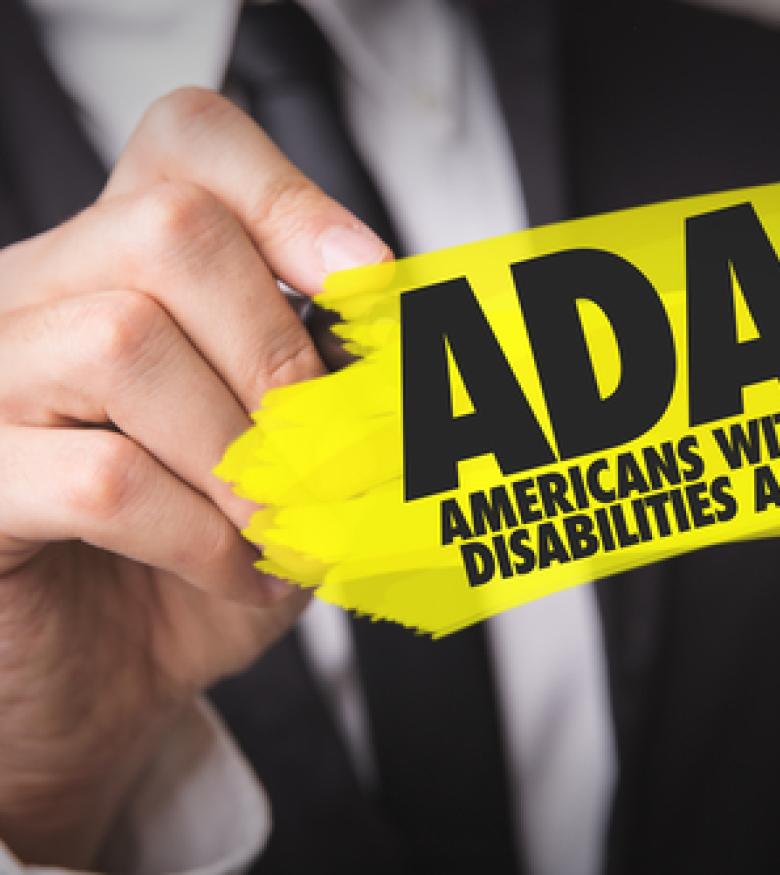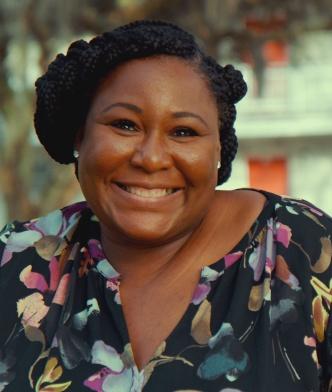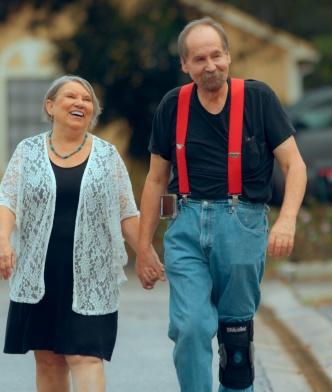Discriminated Against for a Disability?
Americans with Disabilities Act Lawyers
Rating Overview
- The Fee Is Free Unless You Win®.
- America's Largest Injury Law Firm™
- Protecting Families Since 1988
- 20 Billion+ Won
- 1,000+ Lawyers Nationwide
Free Case Evaluation

Were You Discriminated Against for a Disability?
The Americans with Disabilities Act (ADA) is an important piece of civil rights legislation that became law in 1990. It prohibits discrimination against people with disabilities in workplaces, schools, transportation, and essentially in all areas of public and private life. It also guarantees that people with disabilities will have equal opportunity in public accommodations, their place of employment, state and local government services, transportation, and telecommunications.
The original five titles of ADA were amended in 2008 with the passage of the Americans with Disabilities Act Amendments Act (ADAAA), which made substantial changes to the definition of "disability."
Do you believe you have been denied admission to a school or been passed over for a job promotion due to your disability? Has your employer failed to make accommodations that would allow you to do your job? Morgan & Morgan wants to hear from you. Our experienced ADA discrimination attorneys are passionate about fairness and fighting for the rights of victims like you.
A Closer Look at the ADA
The ADA is divided into five titles as follows:
- Title I: Employment
This title covers all aspects of employment, including a provision that says employers must provide reasonable accommodations to disabled employees so that they can perform their work duties.
- Title II: State and Local Government Services
Regulated and enforced by the U.S. Department of Justice, this title prohibits discrimination against disabled individuals in public entities such as transportation services like Amtrak.
- Title III: Public Accommodations
This title prevents privately owned facilities and places of business from discriminating against people with disabilities. It also mandates that businesses provide reasonable accommodations to render their facilities accessible to disabled patrons and customers.
- Title IV: Telecommunications
Title IV mandates that telecommunications providers make accommodations to allow disabled individuals to use their services, such as providing closed captioning,
- Title V: Miscellaneous
The final title relates the ADA to other laws, discusses the concept of state immunity, and gives a list of conditions that are not considered disabilities.
How it works
It's easy to get started.
The Fee Is Free™. Only pay if we win.
Results may vary depending on your particular facts and legal circumstances.
Step 1
Submit
your claimWith a free case evaluation, submitting your case is easy with Morgan & Morgan.
Step 2
We take
actionOur dedicated team gets to work investigating your claim.
Step 3
We fight
for youIf we take on the case, our team fights to get you the results you deserve.
FAQ
Get answers to commonly asked questions about our legal services and learn how we may assist you with your case.
How Does the ADA Define 'Disability'?
The ADA establishes a legal definition for "disability"; someone disabled in another context — say, for the purpose of receiving Social Security disability benefits — may or may not fit this definition.
A disabled person is someone with a mental or physical impairment that "substantially limits one or more major life activity." It includes people with a record of that impairment, even if they are not currently disabled. Moreover, it includes people who may not be practically disabled but technically have a limiting disability.
The Morgan & Morgan Difference
If you believe you’ve experienced discrimination due to your disability, you shouldn’t go through this alone. At Morgan & Morgan, our attorneys understand how devastating and unfair situations like yours can be and want to fight for the compensation and justice you deserve. We’re a family law firm and treat every client as a member of the family, handling their cases personally. And when you win, we win. That means we get paid only if we win for you — we never charge by the hour. With more than 1,000 attorneys nationwide, we have the resources and reach to provide you the best service possible. Fill out a no-cost case evaluation form to speak with an ADA attorney today.
What Is Medical Neglect?
Neglect and abuse are both common types of problems that happen inside nursing homes. Medical neglect specifically refers to staff member failure to assist residents in managing their medical needs. This includes failing to give residents medications on time, leaving bed sores or broken bones untreated, or failing to contact 911 in an emergency. All of these are serious situations and should be avoided by medical staff, particularly in a nursing home where patients are very vulnerable. If medical neglect happens, you may be eligible to pursue a lawsuit against a nursing home for elder abuse.
What Is Neglect of Living Needs?
Every human has basic living needs, and vulnerable populations, such as the elderly with advanced medical conditions, may need assistance with their activities of daily living. If a resident fails to get bathroom visits, water, or food, staff members may be neglecting their basic living needs. This can cause problems such as dehydration, malnutrition, or even death.
What Is a Nursing Home Abuse Lawsuit Complaint?
Your complaint is a legal document that explains how a resident was hurt, the names of all parties involved, and the relevant facts associated with the incidence of neglect. After your complaint has been compiled, your lawyer will then submit this to court. If you're a family member, you may be eligible to assist your loved one with filing a lawsuit against a nursing home abuse.
How Much Can I Receive in a Nursing Home Abuse or Neglect Lawsuit?
Each case is unique and the total sum you might get from suing a nursing home for negligence will depend on multiple factors associated with your case. This is why it is recommended to reach out for help from an experienced and qualified legal team, like those working at Morgan & Morgan, as soon as possible. Compensation amounts will vary, but one peer-reviewed journal published in Health Affairs found that the average nursing home abuse lawsuit awarded over $400,000 on average. Some settlements range higher depending on the specifics of the suit.
What Is the Benefit of Suing a Nursing Home for Negligence?
You may simply want the abuse or neglect to stop so that your loved one can be treated with respect and dignity. However, there are some additional benefits associated with pursuing a negligence lawsuit against a nursing home. You can help hold facilities accountable, enact change so that other residents don't end up hurt, and afford medical care associated with the injuries caused by the nursing home.
What Kind of Proof Do I Need in a Nursing Home Negligence or Abuse Lawsuit?
One of the best things you can do is to gather any evidence you have and consult with an experienced attorney as soon as possible. To succeed with an elder abuse lawsuit, you will need evidence to show how your loved one was hurt. Make note of any signs of nursing home neglect or abuse and when you first began to notice them. If you or your loved one or anyone else in the facility filed complaints against staff members due to previous concerns, make sure that you note these as well.
Your initial evidence should prompt you to go to an attorney. Your lawyer will then review the evidence you have and begin to conduct additional research if necessary to give you the best possible chance of putting together a comprehensive case. It can be very overwhelming to proceed in a case like this on your own, especially when you simply want to help a loved one who never should have been hurt in the first place.
If you have further questions about what to do to proceed, contact Morgan & Morgan for a free case evaluation. Any nursing home resident who has suffered abuse or neglect can file a lawsuit to seek compensation and justice. In many cases, these residents may be unable to file lawsuits on their own, which means that close family members can file on their behalf.
What Is the First Step to Filing a Lawsuit?
Gathering all of your evidence is the first step toward filing a lawsuit, but you should then consult with a qualified nursing home abuse lawyer as soon as possible. Your attorney will sit down with you at the beginning of your case to determine whether or not you meet the grounds to file a nursing home abuse lawsuit in your state. It is very important to have the insight of a qualified attorney as soon as possible so that you can make an informed decision about your future. Each nursing home abuse case is unique, and it’s important to have the support of a qualified lawyer to guide you through the process from beginning to end.
You can reach out to Morgan & Morgan for a free, no-obligation case evaluation to get started. We’re here to help you recover the compensation you deserve to move forward from this unfortunate event.






